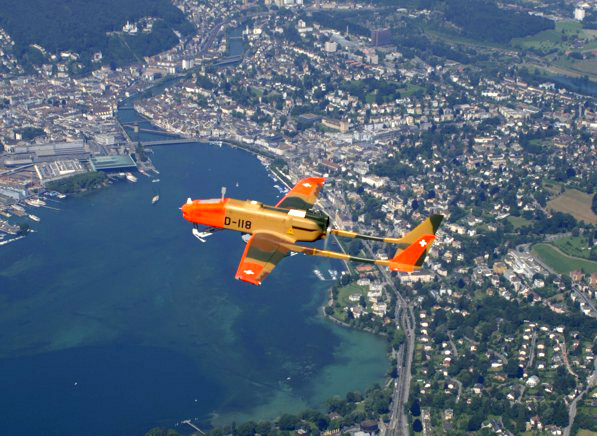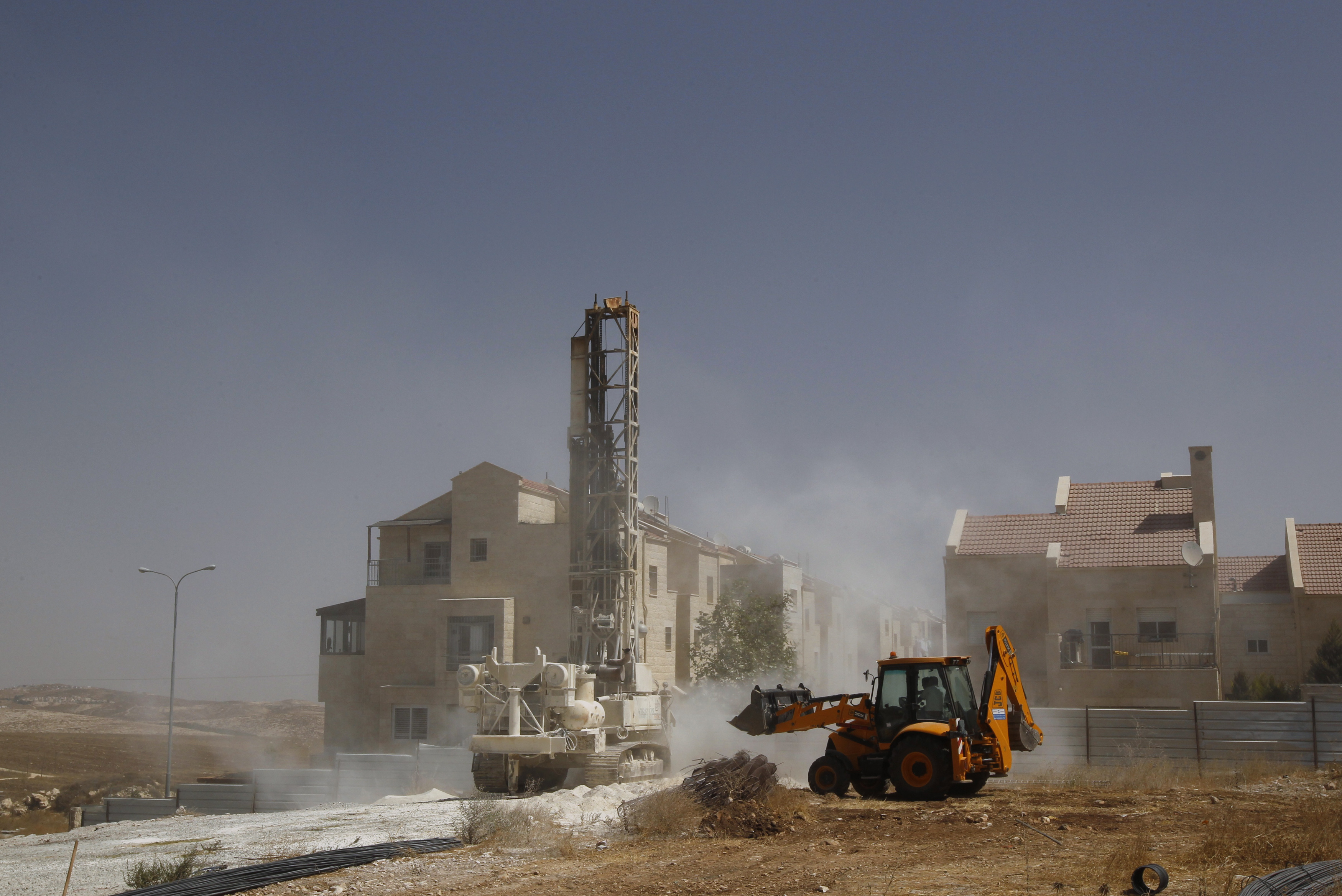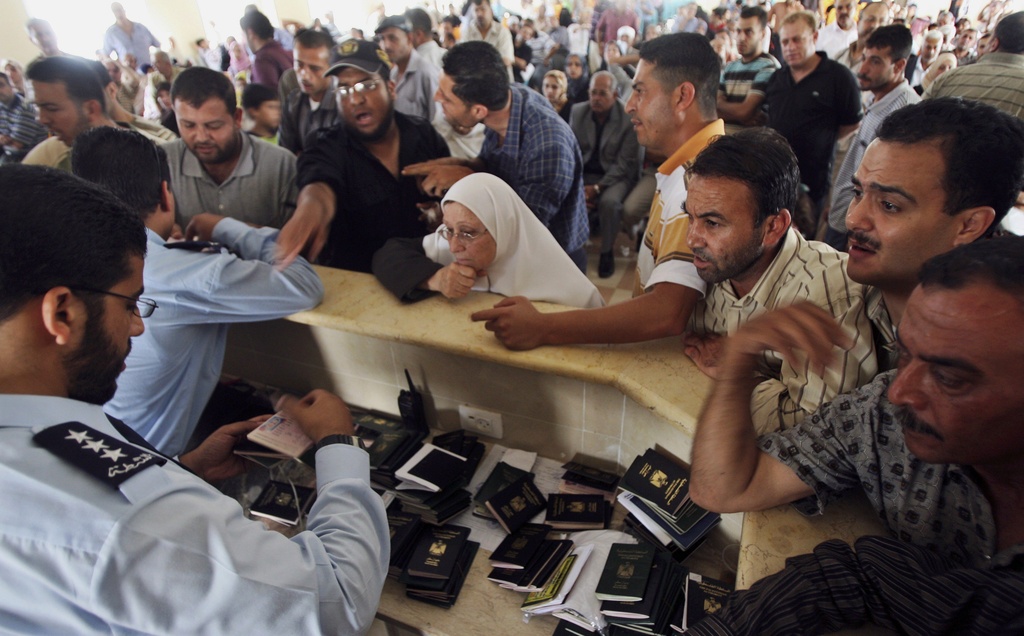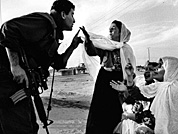Maurer to visit Israel amid thaw in relations

Swiss Defence Minister Ueli Maurer on Saturday begins a controversial visit to Israel aimed at cultivating bilateral relations with this “important partner”.
While some observers say his meetings with top Israeli officials suggest a more positive phase after recent tensions between the two states, several Swiss groups and politicians have tried to stop the visit, claiming it discredits Switzerland.
During his three-day trip Maurer is due to meet Israeli President Shimon Peres and Defence Minister Ehud Barak, who invited him. He will also visit the Yad Vashem Holocaust memorial in Jerusalem.
The defence ministry says the visit aims to promote better ties between the two defence ministers and will cover ongoing military cooperation, in particularly arms issues, the international security situation and the role of the civil protection service.
Maurer told parliament last month he would touch on other bilateral issues “to deepen areas of mutual interest” and discuss topics “where there are differences”.
The Swiss-Israeli Association welcomed the visits to Israel of the defence minister, as well as that of state secretary in the foreign ministry, Peter Maurer, saying it would help re-establish dialogue that had been static since 2008.
From 2006-2009, relations with Israel were strained over Switzerland’s policy in the Middle East, a natural gas deal with Iran and after former Swiss President Hans-Rudolf Merz received Iranian President Mahmoud Ahmadinejad at an anti-racism conference in Geneva. Switzerland defends its commitment to talking to all parties in the Middle East conflict, including Hamas and Hezbollah.
Don’t go!
Thirty non-governmental organisations, supported by Social Democrat Carlo Sommaruga and Green parliamentarians, have tried to stop the minister’s visit.
They argue it undermines Swiss commitment to peace in the Middle East based on international law, and sends the wrong message of support for the Israeli military occupation of Palestinian territories. The NGOs took their protest to Bern on Friday with about 100 people demonstrating against the visit. A similar protest was due to take place in Geneva.
Maurer argued in parliament that bilateral talks would allow Switzerland to “pass on its vision” on the peace process and related issues.
Defence ministry spokesman Sebastian Hueber said the minister planned to express concerns about the findings in two recent Human Rights Council reports regarding the follow-up to the Goldstone report and the Gaza flotilla incident.
“He will also seize the opportunity to emphasise the importance of international law, especially respect for international humanitarian law by all the parties to the conflict,” Hueber told swissinfo.ch.
Thawing
According to the Geneva-based Le Temps newspaper, Ueli Maurer’s visit is occurring during a thaw in diplomatic ties. The fact that Barak, who is de facto the main foreign affairs official, had invited Maurer “was symptomatic of this change”, it wrote.
The paper said strategic contacts between the two countries had continued despite tensions. Last January Swiss diplomat Christian Catrina reportedly met Amos Gilad, a senior Israeli defense ministry official, for a discreet working meeting on Iran and Hezbollah.
Former Swiss ambassador François Nordmann agreed there was a certain détente in relations.
“We are in a more favourable period,” he told swissinfo.ch. “This has been marked by a meeting in Geneva between Swiss Foreign Minister Micheline Calmy-Rey and Israeli Deputy Prime Minister Dan Meridor in March, and Peter Maurer’s recent visit.”
Military ties and good offices
In terms of military cooperation, arms exports to Israel are generally forbidden, but according to the Group for a Switzerland without an Army, “intense” military collaboration has continued in recent years.
Joint partnerships have been pursued, notably in the development of drones; Switzerland has imported electronic reconnaissance and artillery guiding systems, and other high-tech materials, and high-ranking army and air force officials have met regularly, it said.
“There is an interest in continuing this military collaboration, but Maurer can’t ignore the diplomatic context,” said Nordmann.
Switzerland’s position is one of permanently offering its “good offices” for negotiations, he explained.
“But if you want to offer good offices and participate in negotiations you need relations with all the parties. This is how I see Maurer’s visit to Israel,” said the former diplomat.
Switzerland has been active in the peace process, said Nordmann. Jean-Daniel Ruch, special Swiss envoy to the Middle East, recently visited the region and met all parties to the conflict, and Calmy-Rey took part in a meeting on the peace process on the sidelines of the United Nations General Assembly session in September.
“But I don’t think there has been a lot of movement recently,” he noted, adding that it was in Switzerland’s interest to remain vigilant and available for specific missions.
A free trade agreement between the members of the European Free Trade Association (Efta) , which includes Switzerland, and Israel was signed in Geneva and entered into force on January 1, 1993.
It covers trade in industrial products as well as fish and marine products. In addition, bilateral agricultural agreements have been concluded between the individual Efta countries and Israel.
Switzerland in 2009 exported goods to Israel valued at SFr927.4 million ($959 million) and imported goods worth SFr381 million.
The main exports were pharmaceutical products, precious stones and metal, machinery, agricultural products, watchmaking products and optical instruments.
Imports included precious stones and metal, machines, agricultural products, basic chemical products, optical instruments and watchmaking goods.
The State Secretariat for Economic Affairs in Bern notes that the export policy to Israel is “very restrictive” in view of the Middle East conflict between Israel and the Palestinians.
In 2009 war materiel valued at SFr100,638 was supplied to Israel. This was a temporary export and involved processing of parts for F/A-18 fighter jets.
In the first half of 2010 no war materiel was exported to Israel.
Switzerland operates drones (unmanned aerial vehicles) whose design and technology is based in part on a system of Israel Aerospace Industries.

In compliance with the JTI standards
More: SWI swissinfo.ch certified by the Journalism Trust Initiative





You can find an overview of ongoing debates with our journalists here. Please join us!
If you want to start a conversation about a topic raised in this article or want to report factual errors, email us at english@swissinfo.ch.